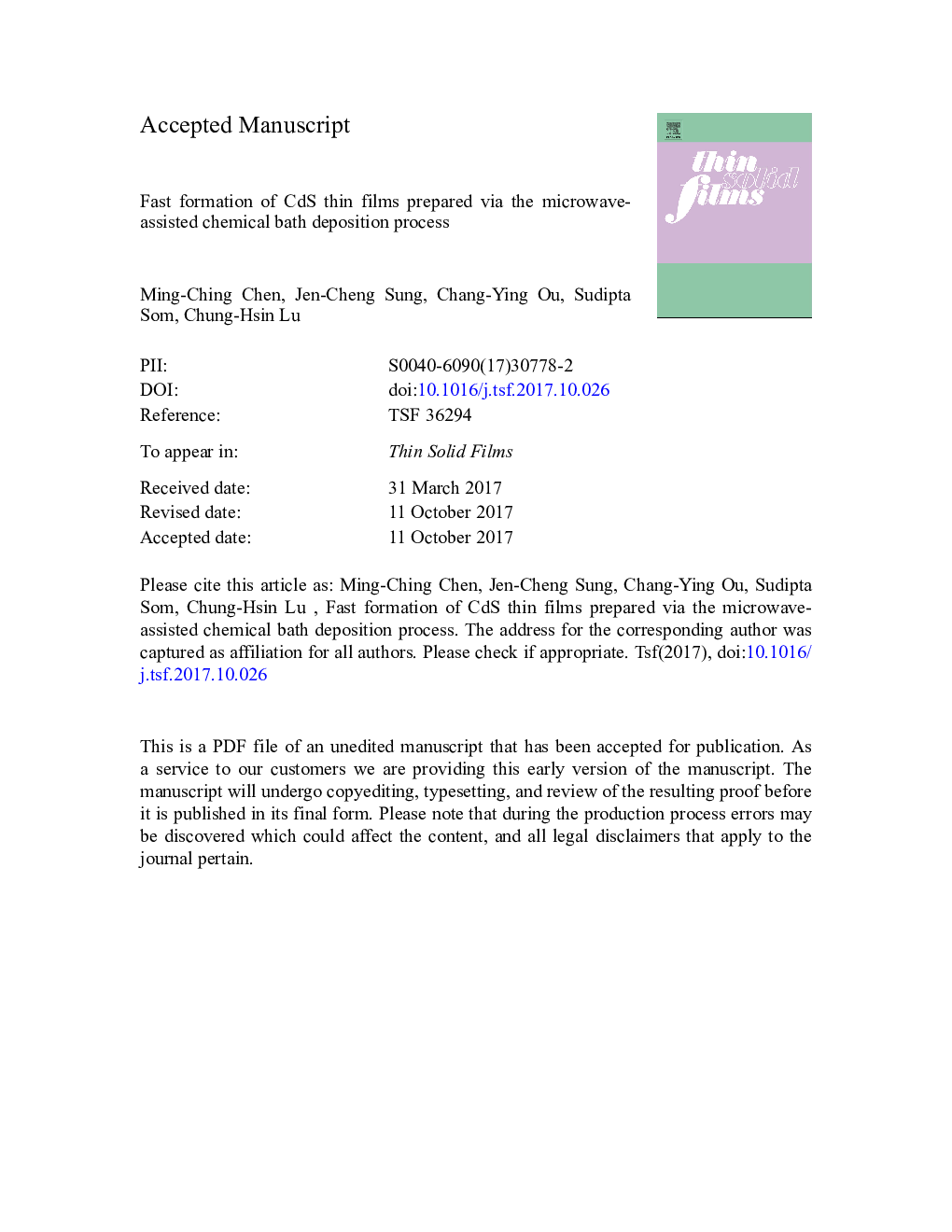| Article ID | Journal | Published Year | Pages | File Type |
|---|---|---|---|---|
| 8033226 | Thin Solid Films | 2018 | 39 Pages |
Abstract
Cadmium sulfide (CdS) ceramic thin films were successfully synthesized via the microwave-assisted chemical bath deposition process in a short reaction period of 5 min at 65 °C. As long as the molar ratios of thiourea to cadmium sulfide ([TU]/[CdSO4] molar ratios) were below 50, dense CdS films formed on Cu(In,Ga)Se2 absorbers. Upon elevating the [TU]/[CdSO4] molar ratios, a large number of CdS particles precipitated in the bulk solutions, leading to the formation of holes on CdS films and a reduction in the film thickness. These phenomena imply that elevating the concentration of thiourea facilitates homogeneous nucleation and suppresses the growth of CdS films. The photovoltaic properties of Cu(In, Ga)Se2 solar cells were influenced by the different [TU]/[CdSO4] molar ratios. When the [TU]/[CdSO4] molar ratio was 30, a relatively high efficiency of 10.83% was achieved. According to diode analysis, increasing the [TU]/[CdSO4] molar ratios raised the diode factor (A) values. The microwave-assisted chemical bath deposition process was demonstrated to be a potential process for the fast deposition of CdS ceramic thin films.
Related Topics
Physical Sciences and Engineering
Materials Science
Nanotechnology
Authors
Ming-Ching Chen, Jen-Cheng Sung, Chang-Ying Ou, Sudipta Som, Chung-Hsin Lu,
